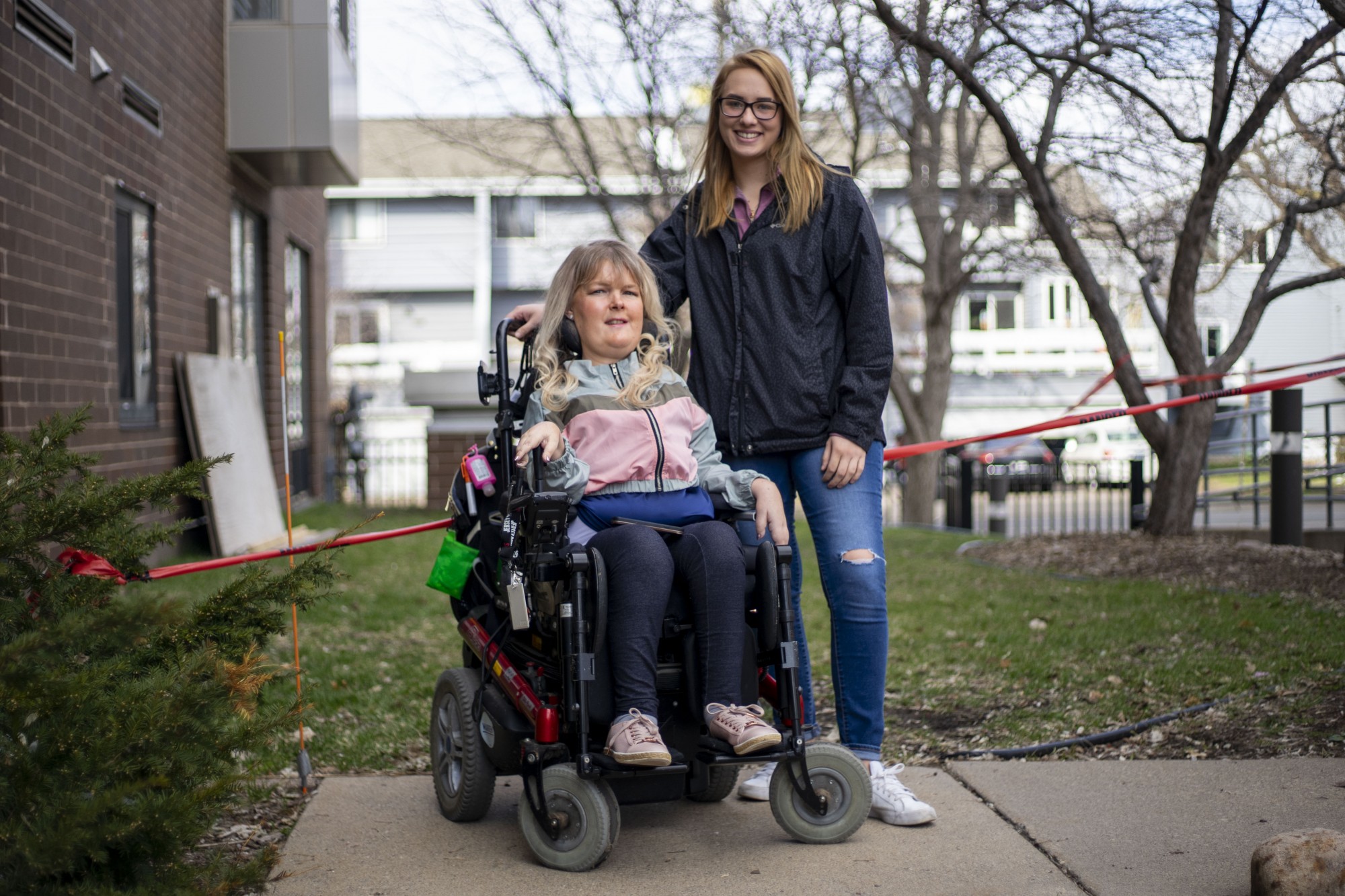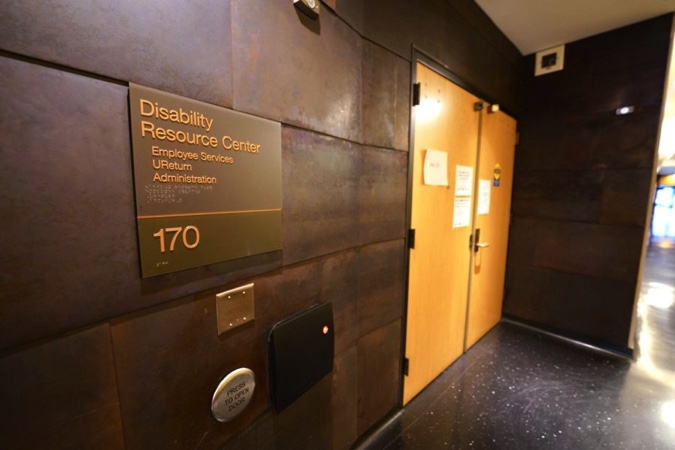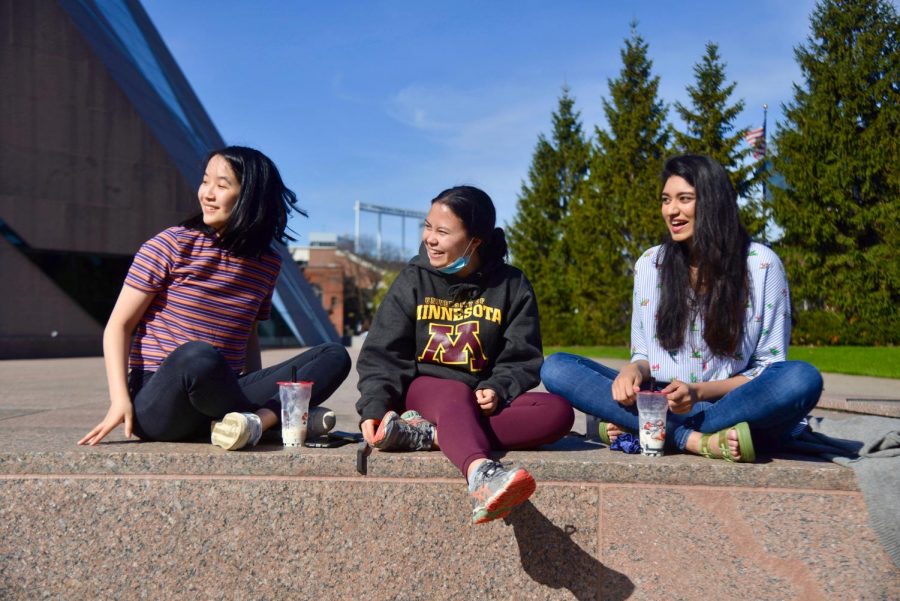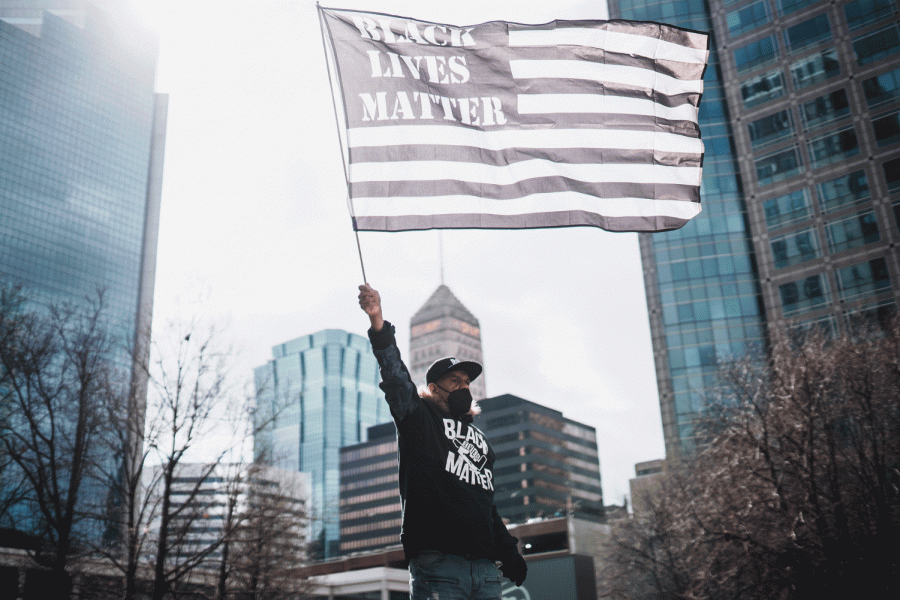For Jen Onsum, it had been a stressful morning.
Onsum is a motivational speaker, model and creative consultant. Living with spinal muscular atrophy, a genetic disease that affects the nervous system and muscle movement, she has multiple personal care assistants who assist her with daily activities.
In late March, she was accompanied by a PCA to a doctor’s appointment. But, as a result of the COVID-19 pandemic, visitors were not allowed with patients for appointments at the site. Onsum was told her PCA could not join her.
“They said they had staff who could escort me to my appointments and assist me in my appointments, but that doesn’t work. I have 24-hour care. I have very personalized needs,” she said in a Facebook Live video March 30.
It took Onsum 45 minutes to be allowed in with her PCA, whose services are considered “medically necessary” under state law.
Personal care assistants, who assist clients who may be elderly, injured or disabled, are deemed “essential workers” under Gov. Tim Walz’s ‘stay-at-home’ order.
While many University of Minnesota students are hunkering down at their homes or in apartments near campus, dozens of student PCAs — including two of Onsum’s — continue to work with their clients, often taking on additional hours and following stricter precautions to ensure the safety and well-being of those they serve.
Trust and honesty
Like everyone else in the state, Onsum’s life has been upended as a result of the pandemic. Unlike everyone else in the state, Onsum has a higher risk of severe complications or death if she were to contract COVID-19.
Because of this, Onsum has become even more reliant on her PCAs for running errands. Additionally, her relationships with her caregivers have been complicated by the virus — one PCA has had to self-quarantine.
“I have no choice but to trust that my PCAs are practicing social distancing and self-isolation,” Onsum said in an email to the Minnesota Daily. “Their actions or inactions could have significant implications for me.”
If a PCA is unable to work, that puts pressure on others to pick up hours, Onsum said. It also means more trust placed in them.
Paulo Felten, a 42-year-old who lives in Coon Rapids, agreed.
“If a PCA were to elect to stay home, I would kind of be up the creek without a paddle,” he said.
Felten, who was born with arthrogryposis, requires the assistance of PCAs for 13 hours a day. Students have worked with him throughout the years, and he currently employs a University alumnus.
For clients, as well as their PCAs, the economic downturn has hit hard. Onsum lost one of her jobs and is down a paycheck. Felten’s roommate moved out, and his girlfriend lost her job at a day care, making rent more difficult to pay.
However, for many, PCA services are paid for by the state, meaning there is one less thing to worry about for Felten.
“I’m extremely grateful for [my PCAs],” Felten said. “They’re willing to come to work, even though they have the choice of staying home – I’m so appreciative of that.”
Intellectual property attorney Ann Motl is able to work from home but requires the assistance of PCAs for day-to-day activities.
The pandemic means additional precautions for her and her caregivers — most of whom are University of Minnesota students — including bleaching hard surfaces twice a day, frequent hand-washing and giving out a limited number of masks or gloves.
“With like six different people coming in, you have way more exposure when you think about everyone they’ve been in contact with,” she said. “If one of us gets this, that’s how this whole tower crumbles. “
Precautions during a pandemic
With more than 1,100 employees and nearly 60 residential homes, ACR Homes, one of the most recognizable PCA recruiting companies on campus, employs dozens of University students, said Phil Baumgarn, ACR’s director of recruiting.
While thousands of employees are making the switch to distant and at-home work, that is not a practical reality for PCAs, Baumgarn said. The residents they work with still need assistance, which has increased with the cancellation of in-person day programming.
“[Our PCAs] know that our residents need care. We have some great people who are picking up shifts and really stepping up to the plate,” he said.
The work dynamics at ACR have shifted during the pandemic. While some student PCAs have left the Twin Cities, Baumgarn said the tumult has not been severe. In fact, ACR has provided temporary housing for some first-year students who wanted to continue to work but were required to move out of the dorms.
Additional precautions have been taken by home health care agencies. ACR now takes temperatures of all PCAs before they enter a facility. At Best Care, an agency that connects at-home care assistants with clients, administration and timesheets have moved wholly online, said CEO Andre Best.
Best said one of the biggest problems facing nearly all other health care workers, by far, is a shortage of personal protective equipment, or PPE. He has ordered some 10,000 pairs of gloves and 1,500 face masks.
“PPE is not supplied to us from any kind of government source and in-home health care is kind of like the lowest priority. To this day, we still don’t have a source or any kind of funding assistance to get it,” Best said.
Kathy Messerli, executive director for the nonprofit trade organization Minnesota HomeCare Association, said that some clients have wanted their PCAs to stay at home for fear that they may get them sick.
Additionally, the hurdles, like the misunderstanding that caused Onsum to be late for her appointment, are likely going to mount during the pandemic, Messerli said.
“There are going to be many challenges. There are stores that only want so many people to go in at once,” she said. “So, if someone who has a PCA wants to go into a store … what if they have young children?”
Although numerous fields, from the arts to the food industry, are experiencing unprecedented shutdowns, that does not mean the existing void in PCA workers has decreased, Messerli said
“There is a significant amount of training … you wouldn’t be able to just simply hire someone today and put them out to work tomorrow,” she said.
Regardless, Messerli said she acknowledges just how much of a strain the pandemic can be on both PCAs and their clients.
“Letting someone into your home already requires a ton of trust – this is only going to test that,” Messerli said. “As a PCA, you are truly essential. It isn’t just showing up for work – someone truly depends on you.”
Student care and carefulness
Kevin Patton, a senior studying accounting at the Duluth campus, started working as a PCA at age 16. He currently works with several young adults who have Down syndrome.
Patton said he tries to see his residents, but their daily routine has also been upended. The gym and pool at the resident home have closed, so instead residents can go on walks or play catch with him.
One client’s mother is limiting his time spent out and about, including regular visits with Patton. They still manage to keep in touch – they FaceTime nearly daily, Patton said.
University senior Elizabeth Wolf used to work at a resident home as well but has been working with a 15-year-old with autism for the past year.
She said she is grateful to work on a one-on-one basis with someone versus in a group setting. For her, it means less stress – especially during a pandemic.
“It would be very, very scary to be working in an assisted living home, especially right now knowing how vulnerable the residents can be in those places,” Wolf said.
Kaylen Lowe started her current PCA role for a girl and her family in the fall. The girl she works with has developmental cognitive disabilities, a chronic illness and physical limitations.
For Lowe, a senior studying special education, incorporating elements of teaching into her job has also been challenging.
“Being a PCA is a very delicate and intimate relationship. Routine changes are hard for clients and for PCAs,” she said.
Working 16 hours a week with someone who is immunocompromised makes Lowe even more cognizant about her social distancing practices.
She lives with seven roommates. Lowe said she is really the only person leaving the house to go to work, and even then she is constantly washing her hands or changing her clothes.
Although personal care assistants work with vulnerable populations just like doctors and nurses do, Lowe said she feels they have not been thought of or prioritized in quite the same way during the pandemic.
“We’re already in a hyper vigilant state. It’s definitely one of my bigger fears that like, I’m going to be the one that gives this virus to a girl I absolutely love,” she said.





















